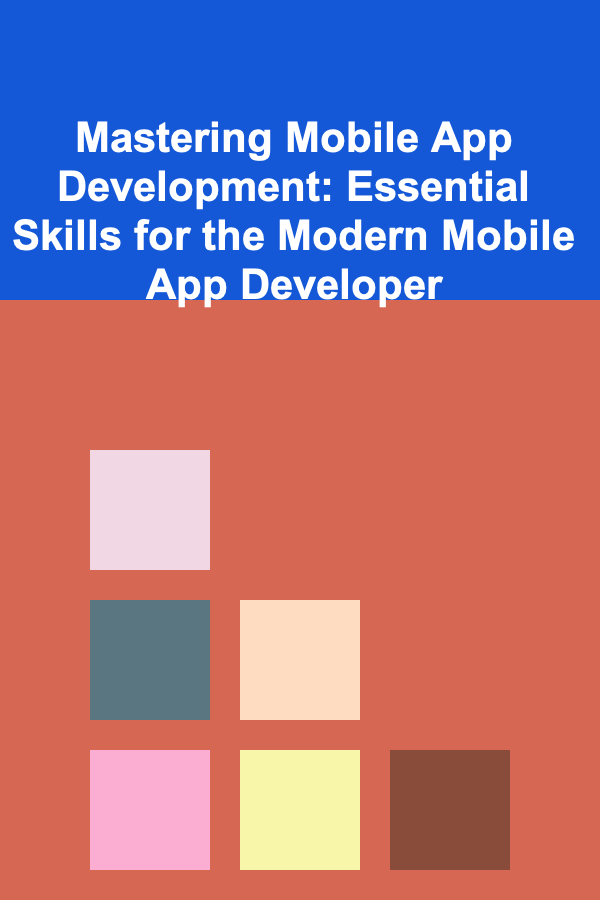
How To Write a Query Letter That Gets Noticed
ebook include PDF & Audio bundle (Micro Guide)
$12.99$8.99
Limited Time Offer! Order within the next:

A query letter is one of the most important documents in an author's journey to getting published. It is a formal way of introducing yourself and your work to literary agents or publishers. A strong query letter can be the key to opening the door to opportunities in the publishing world. However, writing a query letter that stands out in a sea of submissions can be a daunting task. This article will delve deep into how to craft a compelling query letter that catches the attention of agents and publishers and improves your chances of securing representation or a publishing deal.
Understanding the Purpose of a Query Letter
A query letter is not just a cover letter---it is a business pitch for your manuscript. Its purpose is to convey the essential information about your book, your qualifications as an author, and why your work is worth considering for publication. A query letter is usually short, typically around one page, but it needs to pack a punch and effectively communicate the unique value of your manuscript.
Before diving into how to write an effective query letter, it's important to understand what literary agents and publishers are looking for. They are typically flooded with hundreds, if not thousands, of submissions each year. They have limited time to review these queries, so your letter needs to quickly grab their attention and make them want to read more.
Elements of a Strong Query Letter
1. The Subject Line or Opening Sentence
If you're submitting your query via email, the subject line is the first thing the recipient will see. It needs to be clear, professional, and attention-grabbing. Avoid vague or overly clever subject lines. Instead, keep it simple and straightforward. You want the recipient to know immediately that you are submitting a query for a manuscript.
Example:
- "Query: [Title of Manuscript] -- [Genre]"
- "Query: [Manuscript Title] -- A [Genre] Novel"
If you're submitting by mail, the opening sentence of your query letter is equally important. It should state clearly and concisely what you're submitting and offer a hook that makes the agent or publisher want to read more. The first sentence can set the tone for the rest of the letter, so make it count.
Example:
- "I am seeking representation for my 85,000-word fantasy novel, The Dragon's Wake."
2. The Book Summary
The most important section of your query letter is the book summary. This is where you will summarize your book in a way that excites the reader and shows them why your manuscript is worth their time. A compelling book summary should not exceed 3-4 paragraphs, so you need to convey the essence of your story concisely.
A few key things to include:
- The Premise: Describe the central conflict or situation of your story.
- The Protagonist: Who is the main character, and what do they want? What is standing in their way?
- The Stakes: What's at risk in the story, and why should the reader care?
- Tone and Style: Convey the genre, tone, and voice of your work.
A well-written summary balances giving enough details to intrigue the reader without over-explaining. It should be a snapshot of the plot that raises questions and curiosity. Avoid unnecessary details like subplots, minor characters, or world-building aspects that don't directly contribute to the heart of the story.
Example of a strong book summary:
"The Dragon's Wake follows the journey of Talia, a young woman who discovers she is the last of an ancient bloodline capable of communicating with dragons. As a war threatens her homeland, Talia must choose between protecting her family or embracing her destiny as the key to saving her people. With dark forces at play and an army of enemies closing in, Talia's powers may be the only hope, but they come at a price she's not sure she can afford."
3. The Author Bio
The author bio is a brief section that gives the agent or publisher insight into who you are and why you are qualified to write this book. This is where you provide relevant details about your background, previous publications, or any professional achievements that would help establish your credibility.
Things to include in your bio:
- Writing Credentials: If you've published before (in any medium), mention it. If you've won awards or received notable recognition, highlight that as well.
- Relevant Experience: Any experience related to your book's content (such as expertise in a particular field or industry) can strengthen your query. For example, if you're writing a historical novel, your degree in history might be worth mentioning.
- Personal Connection: If relevant, you can also mention any personal experiences that directly relate to the themes or setting of your book. For instance, if your story is set in a particular country or culture and you have lived there, you can briefly note that.
Example:
"I am a graduate of XYZ University with a degree in creative writing. My short stories have been published in Literary Journal and Journal of Fantasy Writers. I am also the recipient of the 2023 ABC Writing Award for emerging authors. This is my debut novel."
If you don't have any formal publications or credentials, don't worry---many debut authors start with no prior publishing experience. Instead, focus on conveying your passion for writing and your commitment to your manuscript.
4. The Closing and Call to Action
The closing of your query letter is just as important as the opening. A polite, professional ending is essential. Make sure you thank the recipient for their time and consideration. If submitting via email, you can also express your willingness to send the full manuscript or any additional materials they may request.
For example:
"Thank you for your time and consideration. I would be happy to send the full manuscript upon request."
If submitting by mail, end the letter with a courteous closing such as "Sincerely" or "Best regards," followed by your full name and contact details.
Common Mistakes to Avoid
While writing a query letter may seem straightforward, many authors make common mistakes that can hurt their chances. Here are a few to keep in mind:
- Over-explaining the Plot: A query letter is not the place to summarize every detail of your story. Stick to the main points and avoid overloading the reader with unnecessary information.
- Being Too Vague: While brevity is key, your summary should not be so vague that the agent or publisher has no idea what your book is about. Provide enough information to create intrigue.
- Using a Generic Template: Personalize your query letter for each agent or publisher. Mention the name of the agent and the specific reason you're submitting to them (such as their interest in your genre). A generic letter can easily be spotted.
- Over-promising or Being Overly Flattering: Avoid using exaggerated claims such as "This is the next Harry Potter." Let your writing and concept speak for themselves. Similarly, don't overly flatter the agent or publisher---it can come off as insincere.
- Neglecting Professionalism: A query letter is a professional document. Use proper spelling, grammar, and formatting. Avoid using overly casual language or making demands (e.g., "I want a six-figure advance").
Final Tips for Writing a Query Letter
- Research the Agent or Publisher: Before submitting your query, ensure that the agent or publisher accepts the genre of your manuscript and is open to new submissions. Tailoring your query shows that you have done your homework and are genuinely interested in working with them.
- Follow Submission Guidelines: Always check the agent or publisher's submission guidelines and follow them to the letter. Some agents may require you to submit a partial manuscript with your query, while others may ask for a synopsis or bio.
- Be Polite and Professional: Regardless of whether the agent or publisher accepts or rejects your manuscript, always be polite in your communication. If you get a rejection, take it as an opportunity to learn and improve.
Conclusion
Writing a query letter that gets noticed is a challenging but crucial step in the process of getting published. It requires clarity, professionalism, and an ability to succinctly communicate the value of your work. By following the guidelines outlined in this article---crafting a strong opening, writing an engaging book summary, highlighting your qualifications, and avoiding common mistakes---you'll increase your chances of catching the attention of literary agents and publishers.
Ultimately, remember that a query letter is your chance to make a first impression. Make it count.

How to Build an Emergency Fund Without Sacrificing Other Goals
Read More
How to Ensure Training Program Scalability with a Checklist
Read More
How to Sell Vintage Toys Through an Online Marketplace: An Actionable Guide
Read More
Mastering Client Relationships: Strategies and Insights for Client Relations Managers
Read More
Mastering Mobile App Development: Essential Skills for the Modern Mobile App Developer
Read More
The Top Deep Learning Business Ideas That Can Make You Money
Read MoreOther Products

How to Build an Emergency Fund Without Sacrificing Other Goals
Read More
How to Ensure Training Program Scalability with a Checklist
Read More
How to Sell Vintage Toys Through an Online Marketplace: An Actionable Guide
Read More
Mastering Client Relationships: Strategies and Insights for Client Relations Managers
Read More
Mastering Mobile App Development: Essential Skills for the Modern Mobile App Developer
Read More